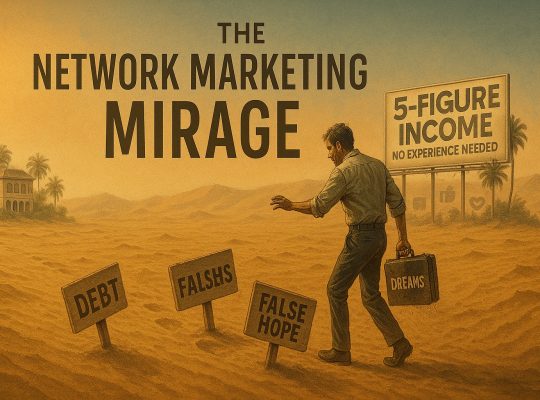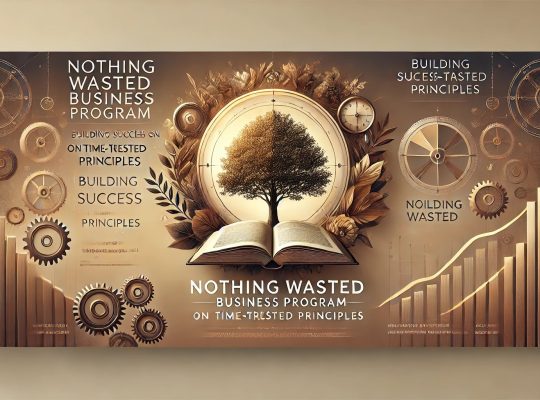Foundational Principles for Lasting Success
Introduction: In the journey toward understanding and success, the first step is often not adding new information but discarding what hinders growth. This idea, though challenging, is deeply rooted in both scriptural wisdom and sound business practices. As we explore this concept, we’ll see how laying a strong foundation—both spiritually and practically—can lead to sustainable success.
Scriptural Insight: In the Bible, there are numerous examples of the need to strip away the old to make room for the new.
Ephesians 4:22-24 tells us, “Put off your old self, which belongs to your former manner of life and is corrupt through deceitful desires, and to be renewed in the spirit of your minds, and to put on the new self, created after the likeness of God in true righteousness and holiness.”
This passage speaks to the necessity of letting go of the old, unproductive ways of thinking and living, to embrace a renewed, purposeful existence.
Similarly, in business, the principle of “addition by subtraction” often applies. Before new strategies, skills, or systems can be effectively implemented, it’s crucial to identify and remove outdated practices or mindsets that no longer serve the organization’s goals.
The Pain of Letting Go: For many, the process of discarding what’s familiar can be painful. Whether it’s a business clinging to old ways of operating or an individual holding onto outdated beliefs, letting go can feel like losing a part of oneself. However, this step is essential. As Jesus taught in
Matthew 9:17, “Neither do people pour new wine into old wineskins. If they do, the skins will burst; the wine will run out and the wineskins will be ruined. No, they pour new wine into new wineskins, and both are preserved.”
In a business context, this means that attempting to implement new ideas without first clearing out the old can lead to failure. For instance, a company trying to adopt modern digital marketing strategies without first letting go of outdated marketing tactics may find that the new strategies are ineffective because they’re being applied in an incompatible context.
The Challenge of Teaching Adults:
Teaching foundational principles is often easier with children, who, as kindergartners, have no preconceived notions. They are a captive audience, ready to absorb whatever is presented to them. However, when dealing with adults, especially those in business, the challenge increases. Adults have more freedom and awareness, but these come with established biases that can make them resistant to change.
Adults, particularly those accountable only to themselves, often resist sitting still to learn or unlearn because they don’t see the immediate need. This resistance can delay the fulfillment of their vision. Proverbs 12:1 offers a stern reminder: “Whoever loves discipline loves knowledge, but whoever hates correction is stupid.”
This highlights the importance of being open to correction and the foundational knowledge that comes from it.
The Importance of Foundational Concepts: When guiding others in business or personal growth, it’s essential to start with the basics—foundational concepts that are easy to grasp and crucial for success. Complicated methods and advanced strategies should come later, once the fundamentals are solidly in place.
This mirrors the Biblical principle found in Hebrews 5:12-14, where the author laments that the audience still needs milk instead of solid food, indicating their lack of readiness for deeper teachings. In business, this means that without a strong grasp of the basics, advanced strategies can become overwhelming and ultimately ineffective.
Conclusion: The first step to understanding, in both life and business, is knowing what to throw away before building. While most people are unwilling to do that, the process, though painful, is necessary for growth. As you move forward, embrace the challenge of stripping away the old and focus on laying strong foundations. This approach not only aligns with Biblical teachings but also with sound business principles, leading to lasting success.
By prioritizing foundational concepts and encouraging a mindset of renewal and growth, we can help others—and ourselves—achieve the fulfillment of their vision. Remember, the journey may be difficult, but the rewards of perseverance and faithfulness are immeasurable.






